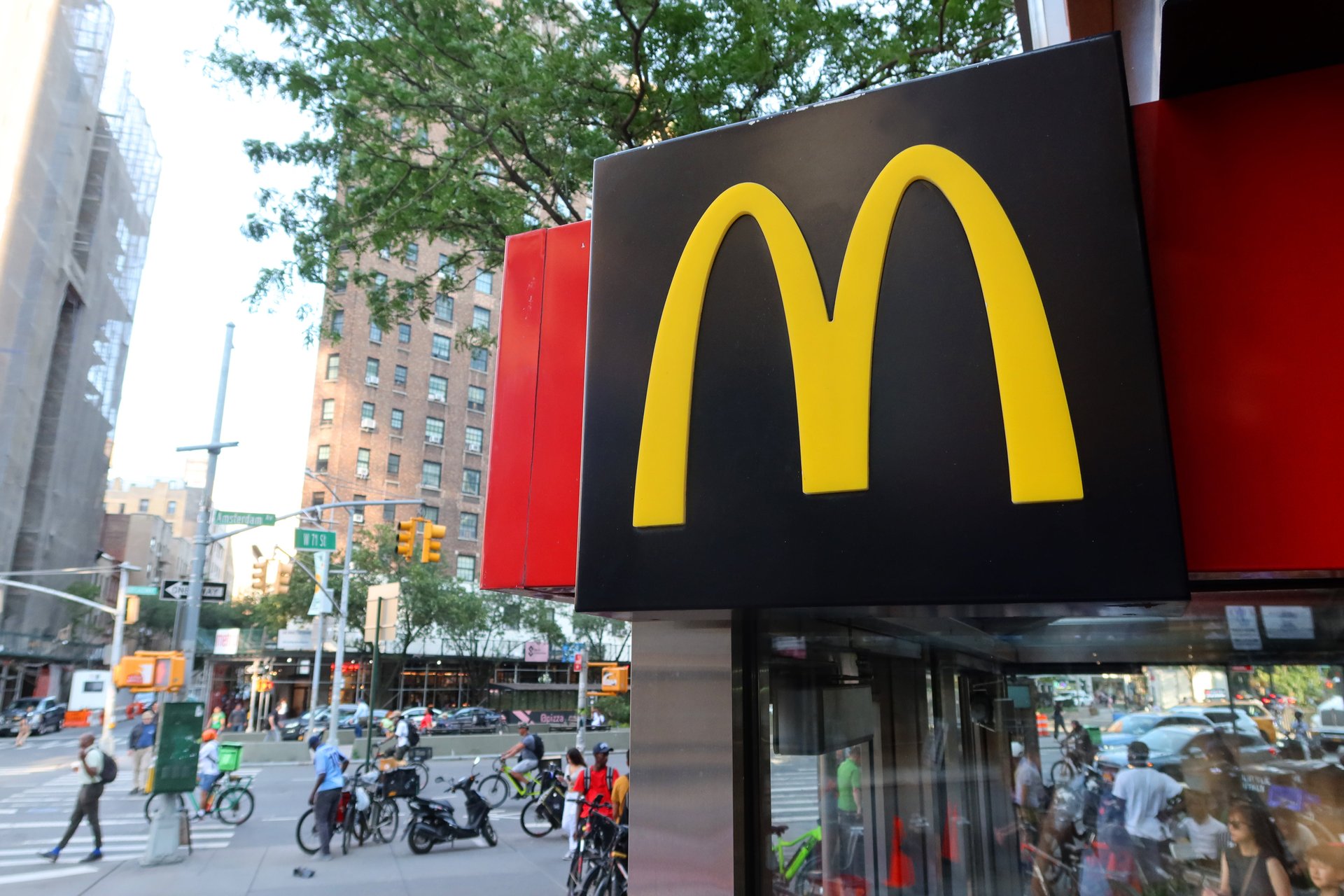McDonald's is going bigger than a Big Mac
The burger giant is pilot testing the 'Big Arch' in select markets

McDonald’s is hoping it can get diners back with a new big burger it has dubbed the “Big Arch.”
Suggested Reading
The “Big Arch” includes two beef patties, layered melted cheese, “crispy” toppings, and a slab of McDonald’s tangy sauce, the chain’s CEO Chris Kempczinski told investors during an earnings call on Monday.
Related Content
The burger is a “quintessential McDonald’s burger with a twist on our iconic, familiar flavors,” he said.
The Chicago-based company said it’s pilot testing the beef burger across three international markets through the end of the year, with plans to gather those learnings and decide then whether to scale it globally.
Canada appears to be one of those test markets. In late June, McDonald’s Canada said locations in Ontario and Alberta would start testing the “satiating burger” until early August. Meanwhile, Portugal is also piloting the burger, describing it as “Mac’s biggest star” in marketing materials.
McDonald’s executives did not state whether the bigger burger would make its way to the U.S. The chain has been hinting for months that it can get consumers back with larger burgers, more chicken, and a better coffee experience.
CEO Kempczinski said the chain continues to see a massive opportunity for growth in chicken (not so much in plant based burgers). The category, which includes beloved staples such as McNuggets and emerging offerings like McCrispy Chicken sandwiches, is now twice the size of McDonald’s beef by global sales.
“The McCrispy Chicken Sandwich is now offered in more than 55 of our markets around the globe, and through our plans to further expand our McCrispy equity, we will continue to capture chicken market share,” Kempczinski said.
The hopes of a big burger came as McDonald’s reported weaker than expected second-quarter earnings, in which it revealed that guest counts dragged both in the U.S. and internationally, prompting sales to lag. That’s despite the chain deploying its $5 meal deal and other promotions to U.S. customers.
The company’s earnings expectations fell short of the Street’s forecast. During the call, McDonald’s pointed to the economy, saying that pressures on lower-income households, including those making between $45,000 and $75,000, deepened and broadened. The chain expects customers will remain under pressure over the next several quarters.
That didn’t keep executives from boasting about the success of the $5 meal deal.
“We’ve seen a lot of enthusiasm and the number of $5 meal deals sold are above expectations,” said Joe Erlinger, McDonald’s U.S. President. “Trial rates of the deal are highest amongst lower income consumers and sentiment towards the brand around value and affordability has begun to shift positively.”
